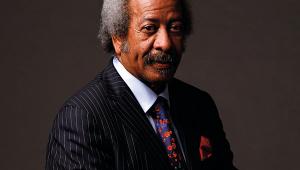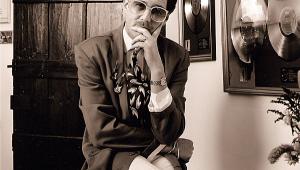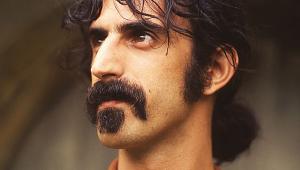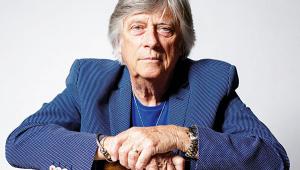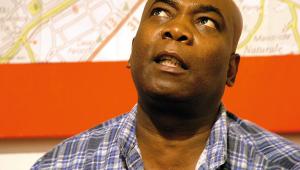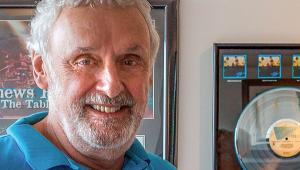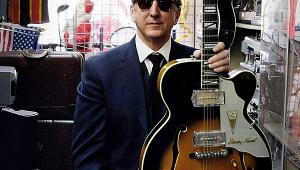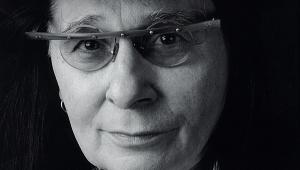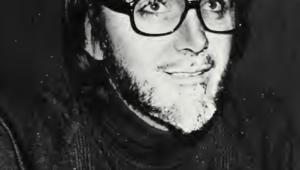Andrew Weatherall Page 2
'There was a lot of luck involved. But that's why Screamadelica is such a magic album. It's one of those times when lots of random molecules bump into each other... The best albums are like that.'
What brought Andrew Weatherall to these dizzy heights was an ace record collection and a fair whack of hutzpah. Having been in a fledgling band or two, he caught a whiff of the winds of change and started DJing at house parties where he was discovered by club guvnor Danny Rampling at Skater Bobby's Party in London's Chapel Market, Islington.
Impressed with the feller's encyclopaedic knowledge, Rampling offered him a DJ slot at Shoom and pretty soon, along with fellow adventurers Terry Farley, Cymon Eckel and Steve Mayes, he founded the Boy's Own business which launched the aforementioned fanzine and a couple of Bocca Juniors discs, 'Raise (53 Steps To Heaven)' and 'Substance'. He also DJed at Paul Oakenfold's Future/Spectrum nights and when Oakie was approached to remix Happy Mondays' ecstatic 'Hallelujah' for the dance floor, he roped in Weatherall to help him out.
Sonic Surgeon
Emboldened by the success of 'Loaded' and Screamadelica, the sky was Weatherall's limit and he did amazing surgery to My Bloody Valentine's 'Soon', St Etienne's cover of Neil Young's 'Only Love Can Break Your Heart', and Spiritualized's 'Come Together' among many others, rendering them fit for club consumption.
Siouxsie Sioux, Bjork, The Orb, Manic Street Preachers… Weatherall was up to his neck in remixes yet also found the wherewithal to author his own stuff in the shape of Sabres Of Paradise, Two Lone Swordsmen, Asphodells and other pseudonyms as well as helming underground club nights such as Sabresonic, Blood Sugar and A Love From Outer Space.
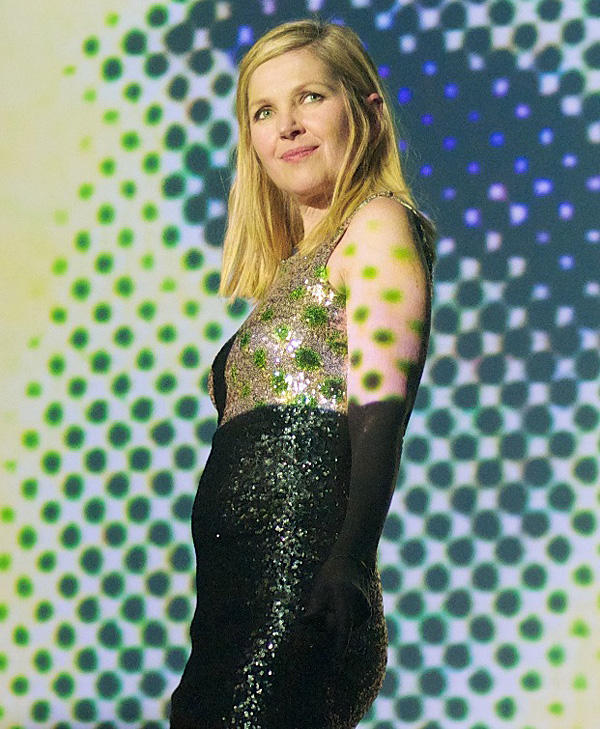
Looking back at all this activity, he marvels at his luck, referring to his work as 'a series of beautiful, totally futile gestures' and himself as, 'a kind of gentleman amateur'.
'What I'm trying to do, as an amateur, is authentic approximation. I'm not trying to be original. If you sit in a studio all day trying to be original, you'll never do it. If you play me something you think is original, I'll play you something from 1958 that proves otherwise! You become original by default.
'If you go into a studio and do an authentic approximation of music you love, I think you end up becoming original without even trying… If you're a writer, or an artist, whatever line of work you are in, you're putting your experiences up to that point, either consciously or subconsciously, into your work. Music changed my life, from the age of about 11 or 12 so it's bound to come out.'
Painful Bunch
Regular readers will know that the usual patter we get from producers is that they're there in the studio to do the artist's bidding, facilitate their talent and bring the very best out of them. Refreshingly, Weatherall has no truck with such platitudes. In fact, he says musicians are 'quite a painful bunch to be around… you know, fragile egos, introverted extroverts, all that. Musicians in the studio can be slightly tiresome, even when they're very nice people, because they want their record to sound how they want… But that's not how Screamadelica was done.
'So when I get asked to do stuff, I tell them that's how I do it. A lot of bands think it's a great idea. Record companies – not so keen. They don't want to entrust it all to one person.'
He doesn't have much truck with the cult of the superstar DJ either: 'When that thing began to take off, I thought, "DJs? Heroes? Are people really that desperate? I know people want heroes, but seriously, this is ridiculous." It was very tempting, because the money to be made and the larks to be had were manifold... But call me unambitious, I was just fine as I was. When it becomes a career,
a career in any business looks quite tiresome and vexing and like it might involve me having meetings with people I don't want to have meetings with.'
He takes a pragmatic approach to technology too. 'I'm not a slave to it, it's a slave to me. I use music software to make music, but I don't feel the need to update every two months, to have the latest thing.
'If I've got something that's doing a job, and it's doing it perfectly well, I will keep that piece of machinery until it gives up the ghost. That's not being a Luddite, that's just being sensible! I'm not seduced by the digital world. I find it attractive, and very interesting. It's a brilliant thing. If you have a laptop in your front room, you're connected to literally everything in the world there's ever been. But it's how it's used. I just use it to enhance my life in a practical way, rather than a cosmetic way.'
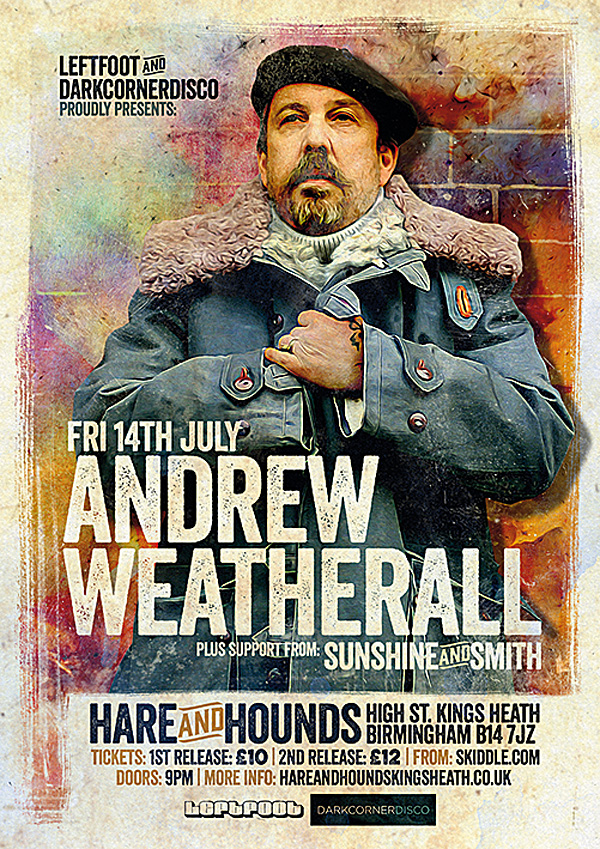
Doing The Twist
If there's a hallmark to Weatherall's many and various works, we could probably simplify it by saying that, unlike many producers, he deconstructs rather than constructs, removing and rearranging the music rather than adding elements.
'That's the way we do it,' he agrees. 'The whole thing will start with an idea, whether it be a sample, a drum pattern, a melody line or something, and everything builds up from there.
'Sometimes you just end up twisting the whole thing so inside out that it's completely unrecognisable from how it was at the start, but to me that's the way you do things, that's how you "jam", for want of a much better phrase, with machines…
'Less is more. Many people tend to work the other way, building up and up and up until the music becomes very closed off.'
He's full of mottos is Andrew Weatherall. We'll leave you with this one: 'The more rules you know, the more rules you know how to break'.

